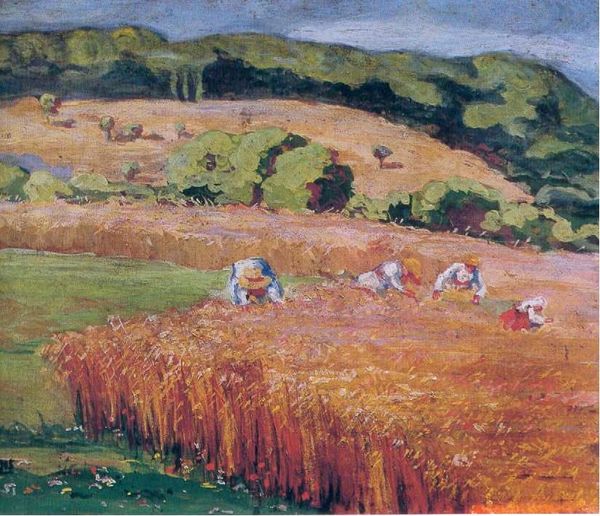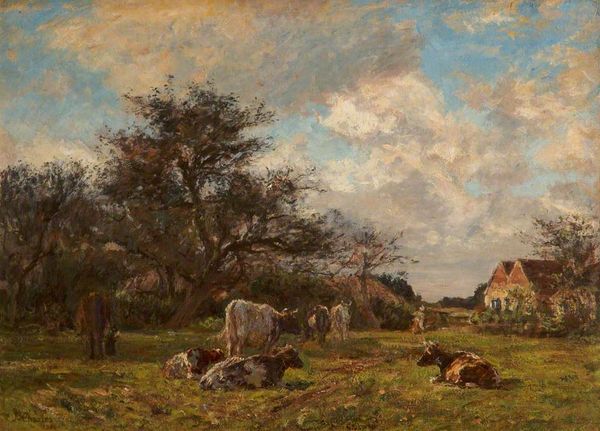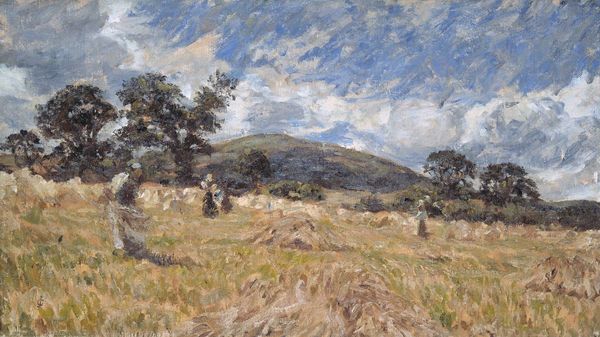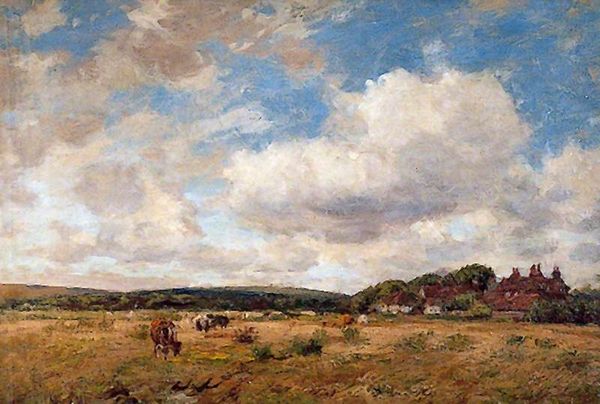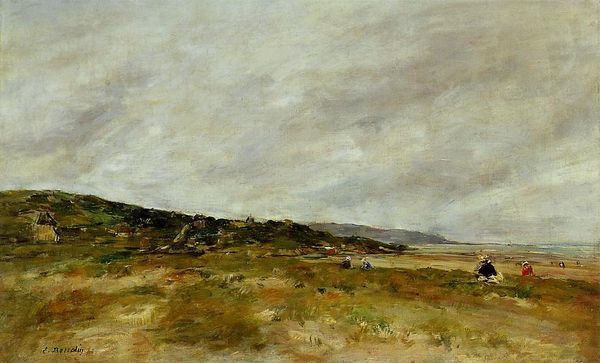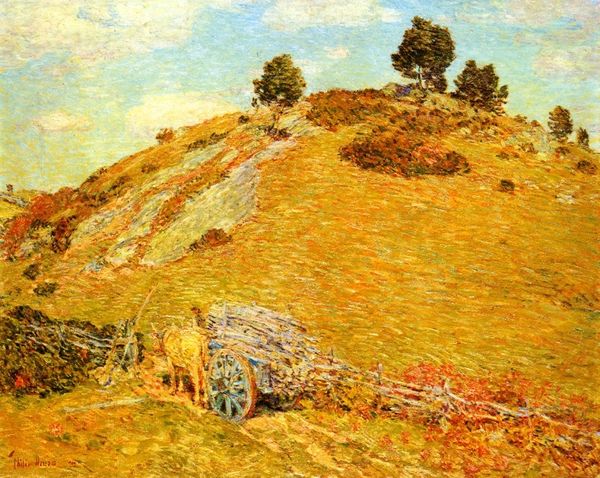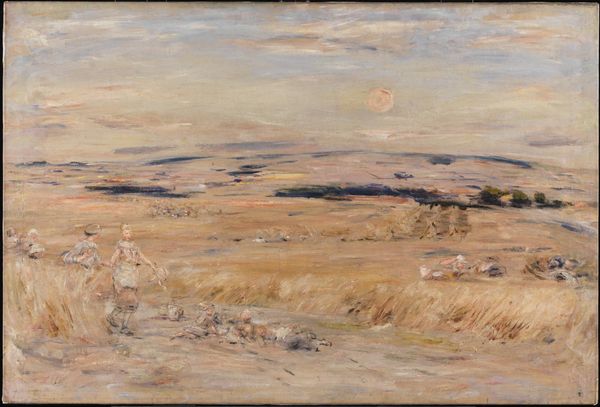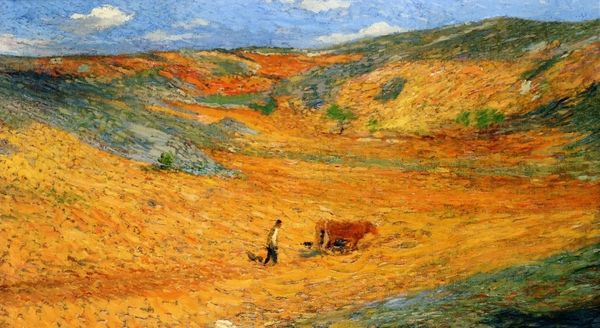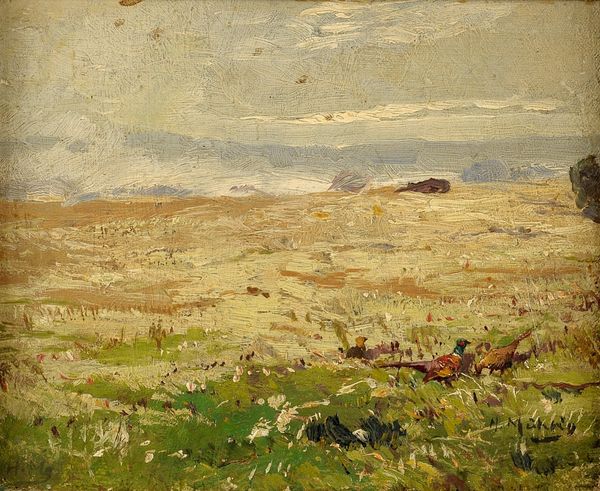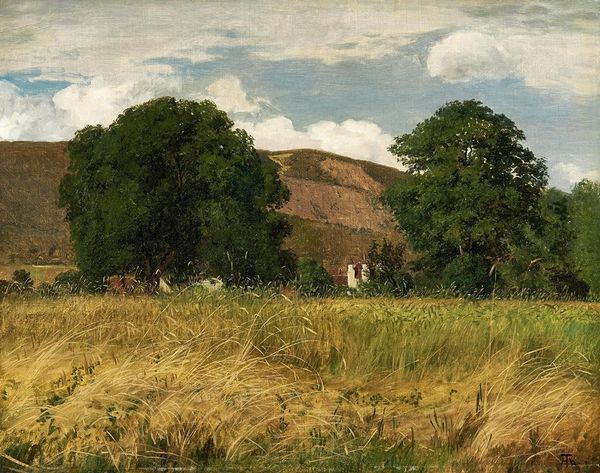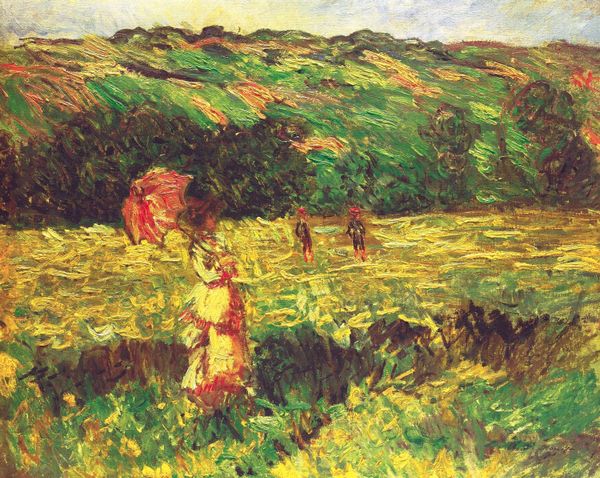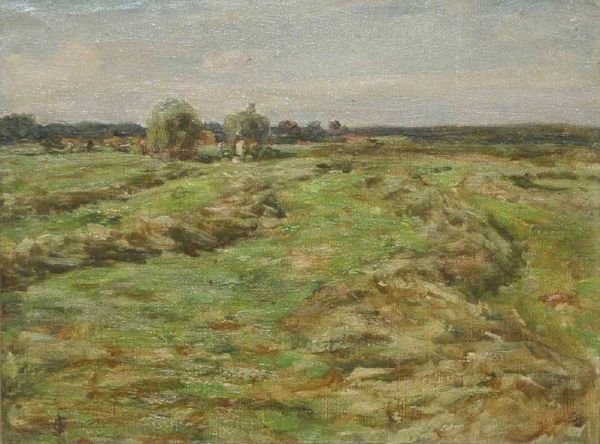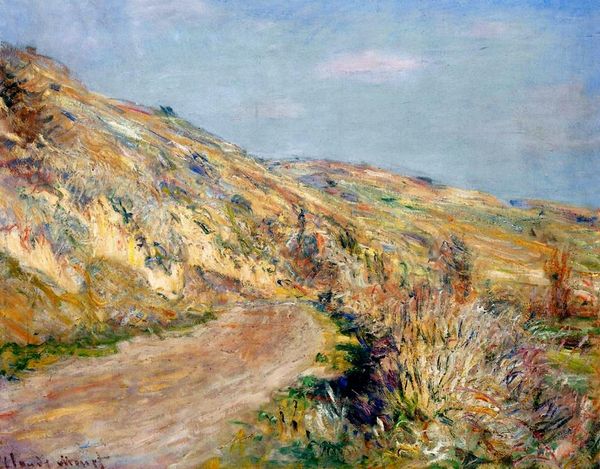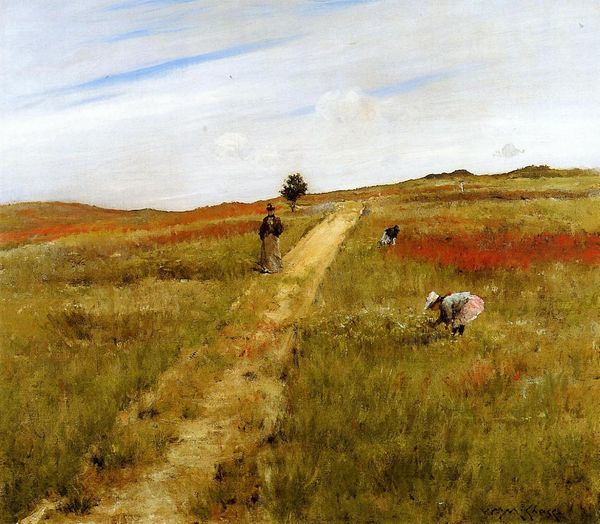
painting, plein-air, oil-paint
#
painting
#
impressionism
#
plein-air
#
oil-paint
#
landscape
#
impressionist landscape
#
oil painting
#
realism
Copyright: Public domain
James Charles painted ‘A Cornfield near Wooler’ in the late nineteenth century, probably in oils on canvas. The impressionistic style captures the light and atmosphere of the English countryside, while showing rural workers harvesting in the fields. The image creates meaning through its visual codes, cultural references, and historical associations. Made in England in the late 1800s, the painting reflects a time of significant agricultural and social change. This period saw the rise of industrialization and urbanization which transformed rural life. With the depiction of labor, the artwork hints at underlying social structures and economic realities. Is the artist nostalgic for an older way of life, or is he commenting on the harsh realities of rural poverty? Understanding a painting like this requires exploring historical sources to uncover the social and institutional context in which it was created. Only then can we fully grasp its meaning and significance.
Comments
No comments
Be the first to comment and join the conversation on the ultimate creative platform.
